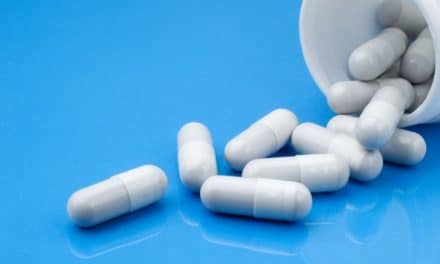Sometimes, accidents are inevitable and can result in injuries like a few broken bones or a concussion. The Centers for Disease Control and Prevention’s reports show that around 190 traumatic brain injuries (TBIs) occur daily in the US. Although most concussions are mild, they are still considered as TBIs with serious risk factors and can take over a month to heal in some cases.
This injury’s symptoms may show immediately, a few days, or hours after you get hurt. If you or someone you love has experienced a concussion recently, keep reading as we delve into how to navigate aftercare and recovery. Remember that the first thing you should do is contact your doctor and follow their instructions.
How Long Does Recovery Take?
Obtaining a concussion while playing sports means you shouldn’t resume playing until an athletic trainer or a doctor evaluates you because reinjuring your head can result in severe consequences. Additionally, you shouldn’t operate machinery, drive, or be alone for 24 hours after the injury.
Most people recover from their initial concussion symptoms within a month to two weeks, with some individuals experiencing persistent symptoms of post-concussion syndrome for up to 6 weeks or longer. For athletes, concussion recovery is not all smooth sailing and can be more complicated. Their doctors recommend at least seven to 10 days of healing before giving them the green light to return to playing the sport. Remember that every concussion and its recovery is different, with the amount of time for the injury to go away and symptoms varying between people.
Concussion Symptoms
Someone who gets a concussion is likely to experience the following symptoms, which can range from severe to mild:
- Balance problems
- Blurred or double vision
- Confusion
- Changes in sleeping habits
- Dizziness
- Drowsiness or feeling sluggish
- Headache
- Memory problems
- Moodiness
- Loss of consciousness
- Nausea or vomiting
- Slowed stimuli reaction
- Sensitivity to light or noise
While most concussion symptoms appear immediately, they may develop in a few days or hours for some people after injury. For this reason, observation, rest, and avoiding reinjury are essential for your health and steady recovery. Consult your doctor regarding when you can:
- Drive a car
- Drink alcohol
- Go back to work
- Make important decisions
- Resume athletic activities
- Travel in an airplane
Immediate Precautions and Treatment
In this section, we’ll provide some steps on what to do in the first few days after you receive a concussion:
1. First Two Days
During the first two days, you should:
- Not drink caffeine
- Rest, rest, and rest!
- Take time off mentally demanding activities like reading, school, computer use, and work
- Sleep at least 10 to 8 hours a day
- Avoid loud noises and bright lights
- Eat a healthy but light diet
- Since alcohol can mask or worsen your symptoms, you should avoid its consumption
- Stay hydrated
- Have someone who periodically checks your symptoms to ensure they’re not worsening
- Avoid sports and other physically demanding activities
- Forgo activities such as playing video games, texting, or any kind of screen time on a tablet, TV, computer, or smartphone. These things require considerable mental focus due to the screen movement and its bright light, deteriorating your condition
2. One Week After Injury
As you start to get better and resume your normal activities, here’s what you should keep in mind:
- Eat, drink water, and sleep. Keep eating a healthy diet, staying hydrated, and getting plenty of sleep, and steer clear of tasks or activities that pose the risk of reinjury
- Slowly start getting into the groove of things; incorporate more activity once you’re sure your symptoms won’t worsen or return. Typically, you can go back to school or work within a week of a mild concussion
- Wait until you’re fully healed to participate in physical activities or sport where you can hurt your head by falling
- Take breaks and switch it up! In the case that your injury gets worse, try a milder version of whatever you’re doing. For example, read a physical book rather than reading on a tablet, walk instead of jogging, etc.
- If you’re unsure whether an activity is safe or your symptoms aren’t improving, you should call your doctor and do a follow-up.
What Factors Affect Recovery?
Your concussion recovery is highly dependent on the original injury’s severity. That is to say that the worse the injury, the longer it’ll take to heal and recover. It doesn’t matter how strong or young a person is, as their symptoms won’t improve without rest.
Don’t try to interfere with your healing and do too much too soon, as this increases the chances of another brain injury leading to more severe health repercussions. For instance, avoid vigorous sports or going to the gym for a bit. Eat a healthy diet with the following foods to promote concussion recovery:
- Vegetables and fruits containing vitamin E that supports the nervous system
- Protein to support healthy brain function
- Nuts, fish, and other foods rich in omega-3 fatty acids for improved brain function healing
In contrast, some factors interfering with concussion recovery include:
- Age
- A history of concussions
- Pre-existing neurological problems
When Should You Seek Immediate Medical Help?
No matter what, head injuries are meant to be handled carefully. Perhaps you got a concussion, and your symptoms are worsening, not improving, or persisting after seven to 10 days. In that case, you should schedule an appointment with your doctor because they might want to see you again. If you are subjected to the following symptoms, it’s recommended to obtain instant medical attention and care:
- Confusion
- Changes to pupils, such as they are unequal in size or unusually large or small
- Loss of consciousness that occurs for more than 30 seconds
- Persistent or worsening headache
- Repeated vomiting
- Notable mental functioning or memory difficulty
- Speech changes
- Seizures
- Vision disturbances
Endnote
Receiving a concussion means that there’s no clear-cut way to determine when you’ll recover fully because the injury is very individualized. Someone with a mild concussion won’t require a lot of downtime or treatment, while a severe one will cause headaches or other symptoms for months. Looking after yourself and taking time off from strenuous activities and sports as you start to recover is essential. Consult your doctor and follow their advice. You only have one brain, so make sure you do everything to protect it and let it heal properly.















